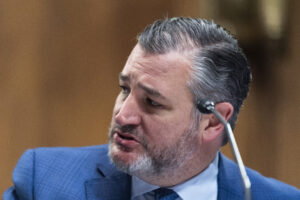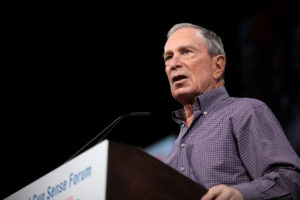The Money Pit
When it comes to matters of money and politics, there is a big gulf between Democrats and Republicans -- in theory.WASHINGTON — When it comes to matters of money and politics, there is a big gulf between Democrats and Republicans — in theory. Democrats tend to favor rules limiting the flow of money into political campaigns. Republicans see campaign cash as a form of protected political speech and oppose restrictions.
In the real-world practice of politics, both sides are willing to do whatever it takes to raise enough money to win. The difference is that Republicans, having rarely backed a campaign finance rule, feel no squeamishness on this score. Democrats do — or at least they worry about being labeled hypocrites for exploiting the very campaign finance loopholes they once derided. As a result, they often end up lagging in the fundraising game du jour, accused of being two-faced, or both.
You can already see this dynamic being played out in the 2012 campaign. First, and timely as the president conducts a West Coast fundraising swing, there is the uncomfortable matter of Barack Obama as the Billion Dollar Man. In the 2008 campaign, Obama became the first major-party candidate since the presidential public financing system was created in the aftermath of Watergate to fuel his race entirely with private money. Obama collected an astonishing $750 million, a cool $100 million more than all the presidential candidates combined raised in 2004.
What made this a little tricky was that Obama had declared himself an advocate of the public financing system. Even trickier: He had promised to take public funds for the general election if his opponent agreed to do the same. As part of his big “never mind,” Candidate Obama promised that President Obama would work hard to fix the system he was helping to bust. “I am firmly committed to reforming the system as president, so that it’s viable in today’s campaign climate,” Obama wrote in a June 2008 op-ed in USA Today. This overhaul, the Obama campaign told The Boston Globe that November, would be a “priority as president.”
Predictably enough, other priorities intervened — and, with Republicans gunning to eliminate the presidential financing system entirely, fixing it wasn’t going to be an easy task. And so, predictably enough, Obama is back at the fundraising trough. His campaign has instructed the big bundlers to collect at least $350,000 each — this year. After the election, no doubt, reforming the system will again be a “priority.”
Then there is the even touchier matter of outside groups. Remember how worked up the White House and Democrats were about those shadowy organizations raising unlimited, and sometimes secret, cash in the aftermath of the Supreme Court’s ruling in the Citizens United case? “All across America, they are pouring hundreds of millions of dollars into a bunch of phony front groups running negative ads,” Obama complained shortly before the election.
Well, never mind. This was the 2010 strategy, and you know how that turned out. The 2012 approach is more along the if-you-can’t-beat-’em-join-’em lines. Democratic operatives have launched a bevy of outside groups aimed at keeping the Senate, taking back the House, and — coming soon — re-electing Obama. Two former White House officials, Bill Burton and Sean Sweeney, plan an outside group to buttress the official Obama effort.
The Democratic groups are organized as so-called Super PACs, meaning that they can take unlimited contributions, including from corporations and unions, but must disclose them. However, some have allied nonprofit arms permitted to keep donors’ names secret, and more could follow.
So the 2012 campaign finance debate is following a predictable script. Jonathan Collegio, a spokesman for American Crossroads and Crossroads GPS, the Karl Rove-founded groups that spent millions in the 2010 campaign, was delighted to play the double-standard card. “Burton has simply jumped into the hypocrite bin,” he told The New York Times. Burton, responding, said Democrats wouldn’t be “taking cues from Karl Rove’s cronies on issues of integrity.”
Between the two sides, I guess you can put me, reluctantly, with the hypocrites, if only because the Republican vision of a no-holds-barred world of campaign cash is so dangerous. Democrats are easier to bash because they fail to live up to their own standards. Republicans, having set the bar low, tend to escape unscathed.
Ruth Marcus’ email address is ruthmarcus(at symbol)washpost.com.
(c) 2011, Washington Post Writers Group
Your support matters…Independent journalism is under threat and overshadowed by heavily funded mainstream media.
You can help level the playing field. Become a member.
Your tax-deductible contribution keeps us digging beneath the headlines to give you thought-provoking, investigative reporting and analysis that unearths what's really happening- without compromise.
Give today to support our courageous, independent journalists.






You need to be a supporter to comment.
There are currently no responses to this article.
Be the first to respond.